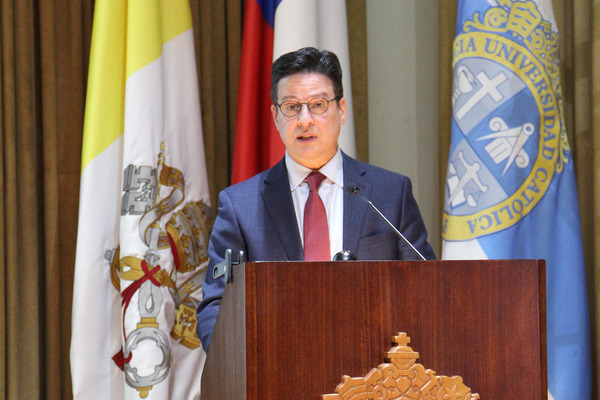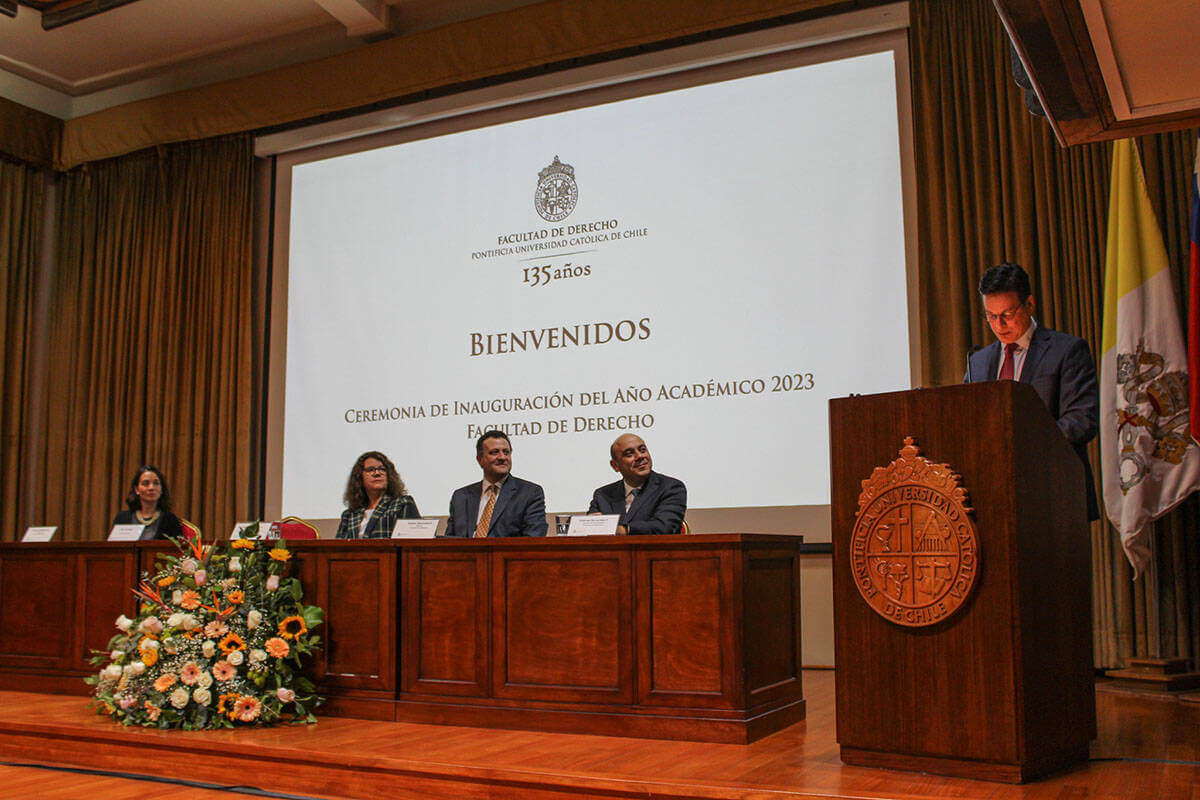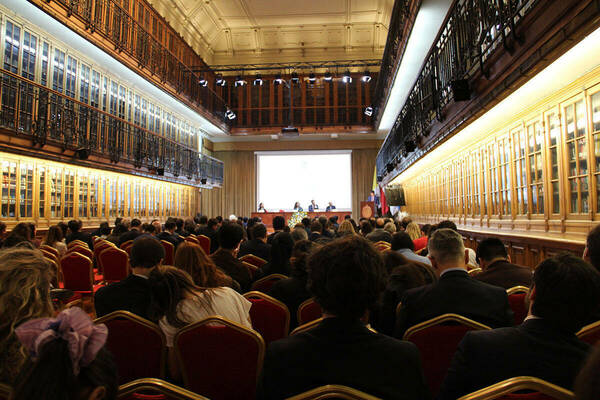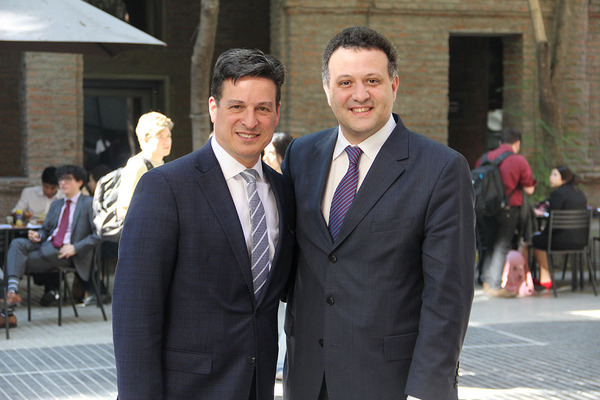Professor Paolo Carozza delivers keynote lecture at Pontifical Catholic University of Chile

Notre Dame Law Professor Paolo Carozza was a guest of honor and keynote speaker last month at the Pontifical Catholic University of Chile’s opening ceremony of the new academic year. The ceremony is Pontifical Catholic University’s most important academic event of the year.
Carozza, an expert in comparative constitutional law and former president of the Inter-American Commission on Human Rights, was able to speak to Chile’s current process of reforming the nation’s constitution. His keynote lecture, delivered on May 10, was titled “The Role and Responsibility of a Catholic University in a Time of Constitutional Change.”
He noted in his lecture that Catholic universities played a vital role in the early 19th century when many Latin American countries were establishing themselves as independent republics. The universities, and especially their law schools, helped to point the way forward by drawing on the intellectual and moral traditions of their Christian heritage and apply those ideas to new circumstances and issues of the time. The distinctive Latin American tradition that took shape was a melding of the classical natural law tradition and the emerging liberal language of constitutionalism and individual rights.
“Today, such a model is still adequate. But it is also true that times are different,” Carozza told the audience.
“The intellectual and ideological challenges to constitutional thinking in our day have their own character, calling into question many fundamental certainties that have remained stable for centuries, including the value of the rule of law, the importance of limited government, the centrality of the human person,” he said. “The social environment is also radically different today, with a rapid and widespread secularization that calls into question the role of Christianity, and of religion in general, in public life, and reducing the openness of the culture around us to the heritage of Catholic thought.”

It is important, he said, to remain focused on fundamental premises — a commitment to seeking truth, the inherent and equal dignity of all human beings, and the essential value of the wisdom of the past, including that of religious tradition.
“The role of the university is not only to contribute its knowledge directly to the social sphere, but to do so over time by educating students so that the search for these essential truths is embodied in each new generation of people called to use their freedom, prudence, and judgment to continue advancing towards the common good,” Carozza said. “Students will only be able to make such a contribution if they are educated in reason and reasonableness, if they are taught to love the truth, and they are also taught how to dissent, how to persuade, how to listen, and how to love others despite our differences, even profound differences.”

Carozza spent a week in Chile with a schedule that included several other activities at Pontifical Catholic University.
Beyond his lecture at the academic year’s opening ceremony, he spoke to law students and faculty in a variety of classes and seminars at Pontifical Catholic University, including those in the LL.M. program and in the Law, Science, and Technology Program. He also met with several members of the expert group that is drafting the Chilean constitutional reform process.
On May 11, Carozza spoke to a large audience of students in the seminar “Political Institutions, Distribution of Power, and Protection of Fundamental Rights.” He compared the models that exist in the United States and Europe, and he offered some observations about Chile.
“The role of the state is not to create rights,” he told the students. “It is to guarantee and not violate rights. ... In the United States, there is a model that seeks to limit the abuse of power.”
On May 12, he discussed his role on the Oversight Board of Meta, which is the parent company of Facebook, Instagram, and WhatsApp. The Oversight Board addresses a variety of issues related to freedom of expression and human rights by making binding decisions and policy recommendations regarding content moderation on Meta’s social media platforms.
The visit was an opportunity to strengthen the long-standing ties between Notre Dame and the Pontifical Catholic University of Chile, which is one of several pre-eminent global law schools that maintain exchange programs with Notre Dame Law School.
In addition, he was able to reconnect with several Notre Dame Law School alumni, including Soledad Bertelsen ’14 J.S.D., Johanna Frölich ’15 LL.M., and Pier Pigozzi ’10 LL.M., ’20 J.S.D.

“Professor Carozza’s visit has been a great honor and a great joy for our Faculty, and we are deeply grateful for it,” said Gabriel Bocksang, dean of the Faculty of Law at the Pontifical Catholic University. “He is one of the most important Catholic academics in the legal field; but, above all, he is a person with exceptional personal qualities. I think that for our entire community it has been an unforgettable visit, from his remarkable keynote address at the inauguration of the academic year, to his activities at the bachelor, master and Ph.D. levels.”
Carozza has had deep connections in Chile for many years. In 2010, he received the Order of Merit of Bernardo O’Higgins — the Republic of Chile’s highest state honor awarded to foreign citizens — in recognition of his service to the Inter-American human rights system.
“I am grateful to have had the opportunity to spend time in Chile, a country and a people with whom I have a long relationship and deep affection, and at the Católica university, an institution with such deep affinities and common commitments with Notre Dame,” Carozza said.